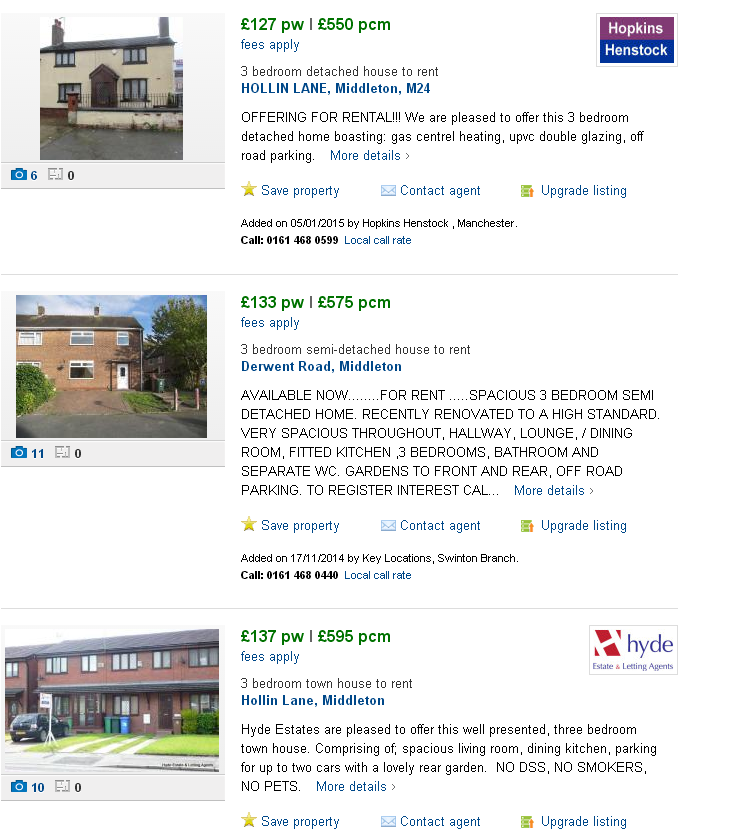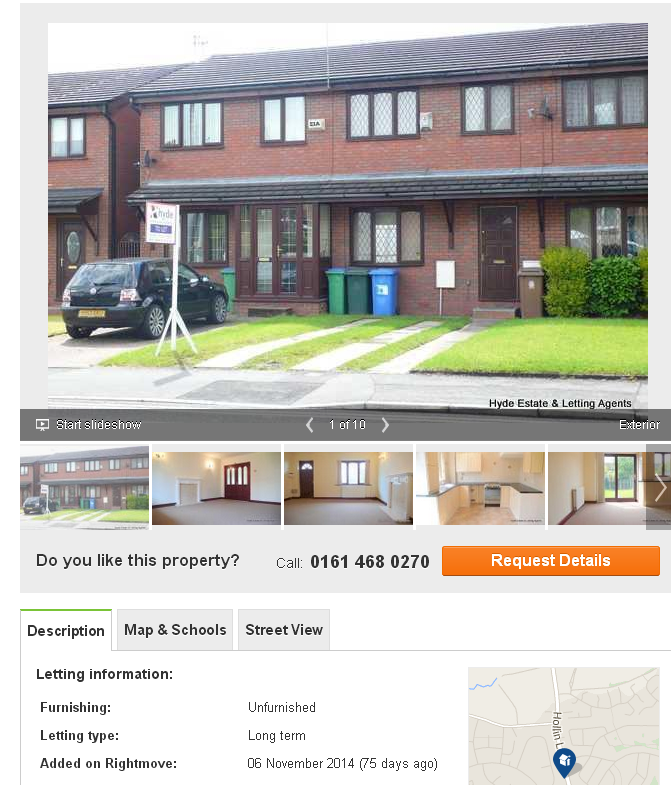Are you considering rent increases across your portfolio this year?
Do you want to earn more money per property?
Do you have long term tenants that have never had a rent increase?
The start of a New Year is often a time to reflect on your property business and like all businesses you will be looking at how you can make more money out of it. One simple thing you can do is apply a rent increase to your tenants rent.
It is a simple method of generating more income per property, especially if your mortgage costs are fixed then you will see a gain in income.
Increasing rent depends on your landlording philosophy, some landlords like to increase every year, keeping the rent in line with market rents, whilst others are happy to leave good tenants on the existing rent for long periods.
The latter encourages tenants to stay long term. Constantly pushing up rents can trigger a move or spoil your landlord-tenant relationship and it could cost you more in the long run than you would gain from a small rent increase, in terms of re-letting and void periods.
In the world we live in prices everywhere keep on rising and there comes a time with a long term tenant when an increase becomes inevitable.
However before you start knocking on your tenants door and demanding an extra £X per month there are some important things to consider and action. I have broken this done into Research and Implement, my two step strategy to rent increases.
Research your Rent Increases
- Use Rightmove.co.uk to perform a simple rent valuation on your property to decide by how much you can increase your rent.
- Input the postcode of your property into the Rental section of Rightmove, click Start Search and then complete the information specific to your property. I set the search radius to 1/4 mile just so you can get a feel for the surrounding areas, in a highly concentrated area, like London, this might get you too many results so amend accordingly.

Researching Rent Increases - This brings up the list of your comparables.
- From this list you can now decide where you are at with your rent.
- In my example shown here, I have a three bedroom mid town house that is currently rented for £500 to a long term tenant. My initial reaction is that the rents have increased somewhat in the eighteen months since she moved in.
- You have to be careful, because an advertised property at a certain price does not mean that the rent is correct. Here’s my tip, click on a property and see how long it has been advertised for. the one showing is 75 days which instantly tells me the price is too high.
- So I know from this that £575 is not a fair rent, and while mine is set low at £500, it would not be a fair to increase the rent by £75 per month.
- My property differs slightly from those on the list and is perhaps a bit smaller, I know from the research that I can make an increase, it is just by how much.
- My instinct is to increase by £25 per month to £525. Great – decision made, let’s get this in motion.
Implement your Rent Increases
The next step is to look at the tenancy so you can implement the rent increase in the correct way. There are three ways to increase the rent when an AST is in place.
- By agreement – when a clause of formulae for increase is included in the tenancy agreement
- By a periodic rent review, again included as a clause within the tenancy agreement
- By a process set out in the 1988 Housing Act – a Section 13 Notice.
Rent increases are not normally required or permitted during the fixed term unless this is for longer than twelve months, in which case it can be written into the agreement. As most agreements are initially for 6 months, any increase would be applied on renewal.
If you are setting up a longer term agreement as the Government are talking about wanting landlords to do, the agreement must take into account of increases, either a review clause or an agreed formulae such as in line with the Consumer Price Index. If you do not do this, you should be happy receiving the rent on the agreement for the length of that agreement.
The best time to increase the rent therefore is at the point of renewal. If both parties are wanting to secure the tenancy for a longer period then now is the best time to talk about and agree on an increase, which if renewing for say a maximum of 12 months would be fixed for the length of that agreement, giving both parties security.
Difficulties arise where an agreement has no mention of rent increases and the tenant refuses to sign a new tenancy agreement or accept a rent increase. In this instance the rent can never be increased in the fixed term but can be increased by Section 13 Notice, using the process outlined in s13(2) of the Housing Act 1008, but only during a periodic tenancy.
Section 13’s are really intended for Assured Tenancies (not Assured Shorthold Tenancies) where the tenant has long term security and a Section 21 does not apply. But the process can be used for periodic AST’s where the landlord cannot get a new agreement signed or prefers to keep the the tenancy periodic.
Using a Section 13 when you want to increase rent without signing a new fixed term agreement.
- The S.13 notice must be in the prescribed form and give the tenant on month’s notice.
- If the tenant is not happy with the proposed rent increas, they have one month to apply to the Residential Property Tribunal, Rent Assessment Committee for a review.
- The process can only be used once every twelve months and tenants should be aware that the committee can award a rent increase from the proposed new rent as well as a decrease.
- Ensure your Section 13 has the following:
- Details of the Landlord / and or agent
- Details of the tenant
- Details of the property
- The amount of the proposed increase in rent
- The proposed commencement date
How we can manage your Rent Increases

If you are a Landlord with Abode, Managed or Let Only, we contact you in advance of the renewal date to alert you that the renewal is due and as if you would you like to proceed with a six or twelve month period of renewal.
We will also ask you if you would like to increase the rent.
Our tenancy agreements permits a rent increase if the tenant has been in situ for 12 months, so this will not apply at your first 6 month renewal.
We will then liaise with your tenant to get the new agreement signed electronically via Docusign, if you are a Let Only landlord you will sign the agreement too, Managed landlords we do this on your behalf.
I hope you found this article helpful, please Share it, Tweet It, Like It, all those things to spread the word of my blog to other like minded Property Investors and Landlords.
There are other Property Management Tips and Strategies for Successful Investors across my blog, for example
Housing Benefit Manchester – the myths and pros for Landlords









